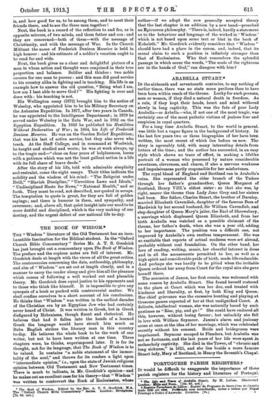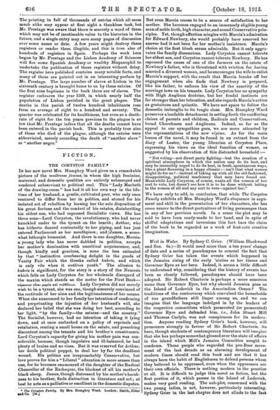PORTUGUESE PARISH REGISTERS.fi
IT would be difficult to exaggerate the importance of these parish registers for the history and literature of Portugal.
• Tho Nemed Times of Arabella Stuart. By M. Lefuse. Illustrated la London: Ar I and Boon. .[10e. 6d. net.] t Regietoe Pareekiewe de lobo& Registo da Freirtgesia de Santa Cruz do Cest-ollo dead 1336 ate PM Pribbicade eons introdummo, notes e India. por Edgar Prestage e Pedro d'Azerre3o. Coimbra. [Os.) The printing in full of thousands of entries which all seem much alike may appear at .first sight a thankless task, but Mr. Prestage was aware that there is scarcely a word of them which may not be of inestimable value to the historian in the future, and a single entry may save many pages of discussion over some name or date. A few years might destroy these registers or render them illegible, and this is true also of hundreds of registers in Spain. Perhaps the work Lere begun by Mr. Prestage and the Lisbon Academy of Sciences will fire some Spanish Academy or wealthy Hispanophil to undertake the publication of those registers without delay. The register here published contains many notable facts, and many of these are pointed out in an interesting preface by .Mr. Prestage. The large number of slaves at Lisbon in the sixteenth century is brought home to us by these entries. Of the first nine baptisms in the book three are of slaves. The register embraces the year 1569, in which nearly half the population of Lisbon perished in the great plague. The deaths in this parish of twelve hundred inhabitants rose from an average of eight to a hundred and seventy. The quarter was celebrated for its healthiness, but even so a death- rate of eight for the ten years previous to the plague is so low that Mr. Prestage infers that all the deaths cannot have been entered in the parish book. This is probably true also of those who died of the plague, although the entries were abbreviated, merely recording the death of "another slave" or "another negro."















































 Previous page
Previous page